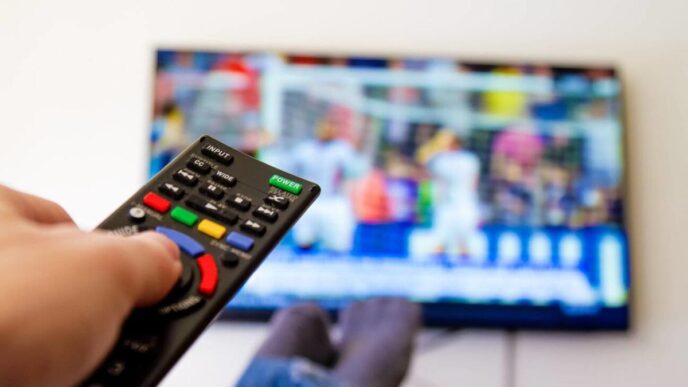As we count down to the 2025 International Women’s Day (IWD) on Saturday, March 8, now is a good time to restart the conversation on skin bleaching among Nigerian women. Hopefully, this will lead to action against the production, sales and use of toxic bleaching creams.
Why does this matter?
According to reports, skin bleaching remains prevalent among many Nigerian women at 77%, compared to 28% in Nigerian men. More women still feel pressured to alter their skin tone, due to the perception that lighter skin equates to beauty, success, and social status.
Despite the severe health risks, skin bleaching remains widespread, particularly among Nigerian women, highlighting the country’s long journey in breaking this cycle and promoting natural beauty as a healthier alternative to skin modification.
Advertisement
To change this perception, we must first understand why Nigerians bleach their skin.
Why Nigerians bleach
For many, bleaching isn’t just about looking good, it’s about fitting into a society that often equates fair skin with desirability and privilege; a society where lighter-skinned individuals, reinforced daily in advertisements and movies, are often cast as the standard of beauty.
Advertisement
The roots of this issue trace back to European colonial influence when lighter skin was linked to power and higher social standing. Over time, these outdated beauty ideals seeped into modern media and advertising. Foreign brands, movies, and pageants still push Eurocentric beauty standards, leaving many Nigerians feeling that their natural dark skin isn’t good enough.
Additionally, skincare companies frequently endorse light-skinned celebrities and influencers, further normalising skin bleaching. Whether intentionally or not, this practice sends a message to Nigerians that true beauty requires transformation. And so, the cycle continues.
For some, the decision to bleach is fraught with uncertainty. One day, they resolve to stop bleaching; the next, they’re back at it. This struggle to decide whether they look better darker or lighter is a clear symptom of deeper issues – low self-esteem and the need for social validation.
The dark side of bleaching
Advertisement
Skin bleaching poses severe health risks. Many bleaching products contain toxic ingredients that strip the skin of its protective barrier. The outermost layer of the skin, the stratum corneum, shields the body from harmful chemicals, pathogens, and UV radiation. Once this barrier is damaged, the body becomes vulnerable to infections and premature ageing.
When bleaching creams are applied, the toxic chemicals used in their production seep into the bloodstream, potentially damaging internal organs like the liver and kidneys.
Then there’s an endless cycle of dissatisfaction since achieving perfect even-toned skin is impossible since bleaching can cause rebound hyperpigmentation, making the skin appear darker and patchy over time. Also, even though sunscreen is designed to protect the outermost layer of the skin, those who bleach are at a higher risk of sun damage and severe burns.
How to repair damaged skin
Advertisement
Skin bleaching can cause long-term damage, including hyperpigmentation, thinning, sensitivity, and uneven tone. If you’re suffering from the side effects of skin bleaching, there are corrective spa treatments that can help to restore and repair your skin.
We have skin rejuvenation treatments that target dark spots and uneven skin tone, restore skin elasticity and firmness, replenish moisture and soothe irritation, enhance cell regeneration and skin healing. Also, exfoliation and skin renewal treatments that remove damaged outer layers to reveal fresh skin, exfoliate without harsh chemicals, and even out skin tone naturally.
Advertisement
Additionally, we have body restoration treatments that eliminate toxins and nourish the skin, restore lost moisture and strengthen the skin barrier, and advanced skincare solutions that stimulate collagen production in the body and reduce damage, deliver essential nutrients directly to the skin, and use natural growth factors to repair damaged skin cells.
The need for immediate action
Advertisement
There is an urgent need for a cultural shift in how Nigerians perceive different skin tones. People should be taught that dark skin is beautiful and does not require modification.
A collective effort is required to combat the bleaching epidemic. The media should highlight dark-skinned celebrities, while skincare professionals must educate consumers about the dangers of bleaching and the importance of self-care through self-acceptance.
Advertisement
Additionally, governments must enforce stricter bans on harmful bleaching products.
Black is beautiful
While we highlight the dangers of skin bleaching, and urge stakeholders to take immediate action, we must also emphasise that dark skin is beautiful. Celebrities, influencers, and anyone with a platform should use their voice to celebrate and normalise dark-skinned beauty.
Those who bleach must understand that true beauty is not about skin tone, it’s about self-love and confidence in one’s natural complexion. Our dark skin isn’t just something to accept; it’s something to take pride in. It’s time we embrace dark skin as the standard of beauty.
Adebagbo is the CEO and Director of Beth Beauty Medical Spa in Lagos.
Views expressed by contributors are strictly personal and not of TheCable.
Add a comment













